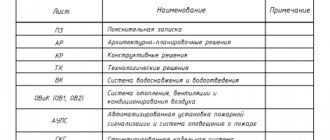A deposit agreement is an agreement by which one party transfers funds to the other party in order to certify its intentions to purchase certain property.
- Form and sample
- Free download
- Online viewing
- Expert tested
FILES
Many people confuse the concepts of deposit and advance payment, as they have certain similarities. However, these concepts should be distinguished, because at their core they have the following differences:
- A deposit agreement is an obligation of one party to purchase certain property from another party, when the advance is simply an advance payment.
- The deposit is security for the fulfillment of obligations under any contract. When concluding an agreement on a deposit, the conditions under which the subsequent contract will be concluded are stipulated, while when concluding an agreement on an advance payment, the terms of the subsequent contract can be changed. Thus, in case of misunderstanding between the parties, the advance payment can simply be returned.
Based on the norms of Civil Legislation, namely paragraph 2 of Article 380 of the Civil Code of the Russian Federation, the deposit agreement must be drawn up in writing.
Below we will analyze in detail the process of drawing up such a document, while highlighting the main points regarding the content of this agreement.
What are advance and deposit? How to get money back if the terms of the contract are violated?
Natalya Tikhonenko, executive director of financial service QOOD
There is no separate definition of the concept of “advance” in the Civil Code, but it is used in the Civil Code and in many other documents, and in practice there are usually no difficulties with it.
The legal nature of the advance is that the customer or buyer transfers a certain amount of money to the contractor or seller in order for him to perform work, provide services, or deliver goods. Theoretically, the advance can be returned until the parties begin to fulfill contractual obligations; this is how it differs from the deposit. In practice, the advance is rarely returned in full in the event of a unilateral refusal by the buyer from the transaction.
Let's consider a simple purchase and sale transaction. If the buyer refuses obligations, the seller loses the planned profit, so the seller can retain the debtor’s things in accordance with paragraph 1 of Art. 329 of the Civil Code of the Russian Federation. The buyer may respond by telling the court that the amount of penalties provided for in the contract is disproportionate.
If the seller has begun executing the transaction and delivered part of the goods, the buyer must reimburse the costs incurred by the seller, including through an advance payment. This situation is possible only if the seller fulfills his obligations in good faith. Otherwise, the buyer may demand an advance amount from the seller.
If in the same situation, instead of an advance payment, a deposit appears in the transaction, we are no longer talking about its return. In case of unilateral refusal to fulfill his part of the transaction, the buyer may lose the deposit provided. If the seller does not fulfill his obligations, he is obliged to pay the other party double the amount of the deposit, as well as compensate her for losses, unless otherwise specified in the contract. The court has the right, at the request of the defendant, to reduce the amount of half of the specified amount.
Ekaterina Smoleva, lawyer
The advance performs only payment and certification functions, but not security. It is paid before the execution of the contract against the payments due. In any case, the recipient must return the advance, regardless of compliance with the terms of the contract.
A deposit (Part 1 of Article 380 of the Civil Code of the Russian Federation) is a sum of money that one party gives to the other party to ensure the fulfillment of the terms of the contract. If the contract was not fulfilled by the one who gave the deposit, it remains with the other party. If the one who received the deposit does not fulfill the terms of the contract, he is obliged to pay the other party double the amount of the deposit.
By law, if you are in doubt whether the amount paid towards future payments is an earnest money, then it can be considered an advance.
For example, if citizen Ivanov sells an apartment to citizen Petrov without a preliminary agreement, the parties draw up a receipt reflecting their mutual desire to enter into a contract for the sale of the apartment and a deposit of 100,000 rubles, which Petrov transferred to Ivanov as security.
Petrov wanted to make a payment using a bank loan, but the bank refused him, so he asked Ivanov to return the deposit to him. Ivanov, citing the fact that the deposit is not refundable by law, refused him this, but since they did not enter into an agreement, such a sum of money cannot be considered a deposit. It can be recognized as an advance payment that must be returned to Petrov.
Consequences of failure to fulfill a contract secured by a deposit
The consequences of failure to fulfill the contract will be as follows:
- if the Buyer who provided the deposit is responsible for failure to fulfill the contract, this deposit remains with the Seller;
- If the Seller who received the deposit is responsible for non-fulfillment of the contract, he is obliged to pay the Buyer double the amount of the deposit.
In addition to the deposit, the guilty party is also obliged to compensate for losses caused by failure to fulfill the contract, with the amount of the deposit offset, unless otherwise provided by the contract.
What is more profitable for the seller and the buyer?
Natalya Tikhonenko, executive director of financial service QOOD
If a participant in a transaction is not completely sure that he will be able to fulfill his obligations, it is not beneficial for him to use a deposit in the contract - he can say goodbye to this amount forever. If this participant is the seller, he risks being required to pay double the amount of the deposit. The advance payment form, the most common in civil transactions, is “softer” for both parties.
The requirement for a deposit when registering applications is common among organizers of public auctions, including when selling assets of a bankrupt enterprise. An advance will not work here. In the case of participation in public auctions, it is unlikely that it will be possible to avoid an agreement on a deposit, which, as a rule, is no more than 20% of the initial price of the lot.
There is such a thing as a “strong” and “weak” side in a transaction. A strong party is one that is willing and able to conclude an agreement only on its own terms. If the strong party has decided that it is ready to enter into an agreement only with the condition of a deposit, then the weak party can only agree to such a condition or refuse to enter into a transaction at all. The weaker party is unlikely to be able to “push through” its terms and must carefully weigh its options. If you fail to fulfill your obligations, you can lose money.
If neither party wants to set strict conditions, for example, counting on further cooperation, it is better to choose an advance form of payment - this will bring the parties to parity conditions.
Irina Pryadeina, lawyer at legal
In a purchase and sale agreement, a deposit agreement is more beneficial for the buyer. In this case, if the seller violates the obligation, the buyer will return his money, receive compensation and be able to recover losses.
For the seller, an advance payment is often more profitable, because if the transaction fails due to his fault, he must return to the buyer exclusively the amount paid as an advance payment, without incurring any penalties.
Ekaterina Smoleva, lawyer
A deposit is more profitable for the buyer, since it forces the seller to comply with the terms of the contract, otherwise he will have to pay double the amount of the deposit. An advance does not provide such security; it can simply be returned to the buyer if the terms of the contract are violated.
If the seller does not want to guarantee the fulfillment of the contract for a specific buyer (for example, there are many people willing to buy an apartment), then an advance can be used. In this case, the seller will not be obliged to fulfill the conditions, but may simply return the money to the buyer.
If the seller wishes to ensure the fulfillment of obligations under the contract by the buyer, then a deposit can be applied. If the buyer refuses to fulfill the contract, the deposit remains with the seller.
Alexey Kuznetsov, General Director
The main disadvantage of a deposit is that in any unclear situation it will be recognized in court as an advance. The downside of an advance is the lack of a security function, which leads to a lack of sanctions for the parties if the deal fails.
If obligations are not fulfilled, there are no adverse consequences for the guilty party. The advance is simply returned to the person who gave it in full, regardless of which party’s actions caused the deal to fail.
When concluding a purchase and sale transaction, it is better to resort to the help of a deposit. Existing penalties encourage both the seller and the buyer to act in good faith, because if the transaction fails, they will have to answer for their guilty actions. An advance payment as such does not provide any guarantees, does not give weight and significance to the transaction, since it makes it easy to refuse to complete it without adverse consequences.
In my opinion, talking about benefits in this case is only possible if one of the parties is dishonest. If the buyer and seller act in good faith, then no one will be left in the red either when using the deposit or when making an advance payment.
Prepayment amount
As a rule, the average prepayment amount is no more than 100 thousand rubles, and the minimum amount starts from 20 thousand. But it all depends on the region. According to experts, the less you contribute, the better. If the owner of the apartment asks for more, then you should first find out the reason. If it is really compelling, then it is worth fulfilling the request. But at the same time, be sure to draw up a deposit or purchase and sale agreement with a security deposit. So that in case of termination of the transaction, the prepayment will be returned to you.
But if the reason seems suspicious to you, then most likely it is better to refuse the purchase. You will protect yourself from scammers who live off such prepayments. And to be completely sure that this is the real owner of the apartment, check him on all fronts. First, for example, make sure that he is not under investigation and is not a frequent visitor to the bailiffs. Then you must definitely find out who the owner of the property is based on documents, and not according to the seller. to order a USRN extract before making an advance payment . She will tell you who previously owned the apartment, how many owners there are, and whether there are any encumbrances on the property. It will be easier and faster to use the EGRN.Register service. Indicate the property address or cadastral number. And in half an hour the electronic version of the document will be in your hands.
How to confirm an agreement on a deposit or advance payment?
Natalya Tikhonenko, executive director of financial service QOOD
It is enough to indicate in the contract that part of the amount is paid as an advance, and the rest - within a certain time after its execution. It is also possible that the entire transaction amount is transferred as an advance. The advance nature of the transferred funds is also indicated in the purpose of payment in the payment order. Even if the contract does not indicate that payment is an advance, the courts in most cases take this point of view.
The deposit agreement must be in writing. To avoid discrepancies, I recommend indicating in the payment order that it is the amount of the deposit under such and such an agreement that is being transferred, and not some other payment. Otherwise, there will be grounds for doubt on the part of both the parties to the transaction and the court.
Alexey Kuznetsov, General Director
You can confirm the payment of an advance by a receipt given by the recipient, an advance agreement drawn up, or the inclusion of a corresponding clause in the preliminary purchase and sale agreement.
The deposit agreement should be approached with the utmost seriousness, since the law requires compliance with the simple written form of this agreement. Failure to comply will result in the recognition of the deposit as an advance payment, and in the event of a dispute being considered in court, you will not be able to refer to witness testimony to confirm the fact of the transfer of funds (Article 162 of the Civil Code of the Russian Federation).
In documents directly confirming the transfer of the deposit (receipts, payment documents), it should be explicitly stated that the transferred amount is a deposit.
We issue a receipt for receipt of the deposit
This document is needed to confirm the transfer of money. The seller must put it in writing in your presence. Make sure that the seller’s signature is the same as on the passport. In addition, the document must contain the passport details of the owner and buyer. Deposit size. Time and date of compilation. You also need to indicate that the funds are transferred under an agreement. Sometimes a separate receipt is not issued, but information about the receipt of money is included immediately in the contract.
If all the documents are completed correctly, then you should not be afraid that the seller will turn out to be a fraudster. Even if he refuses to return the prepaid money, he can be sued. But before that, notify the owner in writing that you want to return the payment and indicate the reason. As a rule, in almost all cases, if the buyer is truly not to blame for breaking the deal, such courts are successful.
Text: Ksenia Antonova
How does a pledge differ from an advance and a deposit and how is it regulated by law?
Natalya Tikhonenko, executive director of financial service QOOD
The pledge itself does not confirm the reality of the transaction. The collateral can be used to secure obligations that will arise in the future. An example is the conclusion of a credit line agreement or an agreement to provide funds in an overdraft mode. In this case, at the time of concluding the collateral agreement, there is no actual execution of the transaction yet (consensual transaction), but the security already exists.
The law establishes completely different procedures for disputes in the case of the use of collateral and deposit if one of the parties to the transaction has not fulfilled its obligations. When using collateral, the injured party can receive payment or compensation for their costs through the sale of the collateral or keep it for themselves. These procedures are not required for the deposit.
The collateral is property or claims, but not money. Similar rules are only the provisions on the pledge of rights under a bank account agreement, established by Art. 358.9-358.14 Civil Code of the Russian Federation.
Similarities and differences
Having different legal functions, the concepts under consideration have similarities. Let's consider the relationship between the deposit and the advance payment by highlighting similar features:
- expressed in monetary terms (set in a certain amount of rubles or other currency);
- are included in the amount of payment under the agreement (for example, funds in the amount of 200,000 rubles have been deposited, the amount of the main obligation is 1,000,000 rubles, the amount of remaining performance in both cases will be 800,000 rubles;
- perform a certifying function (payment of funds in both cases qualifies as acceptance of the offer).
The concepts under consideration have features inherent only to them. From this, distinctive features stand out. Let's look at the difference between concepts in the table, highlighting the characteristics for comparison.
| Comparison sign | Deposit | Prepaid expense |
| Form | Must be written in accordance with paragraph 2 of Art. 382 Civil Code of the Russian Federation | Mandatory form not set |
| Return procedure | Withheld in case of failure to fulfill obligations or refusal to conclude a transaction | Refunded in proportion to the volume of fulfilled obligations or in full |
| Legal nature | Method of ensuring fulfillment of obligations | Advance payment form |
| Consequences upon termination | Upon termination of the contract and withholding the security amount, it retains its legal concept | Upon termination and retention, it is recognized as unjust enrichment |
Deposit, advance and prepayment are directly related to funds. In practice, their identification often occurs. To understand the difference between an advance, a deposit and an advance payment, it is necessary to establish their legal purpose. Unlike the security function of a deposit, an advance and prepayment perform exclusively a payment function. Knowing this abbreviated but comprehensive distinction will help you choose the right legal instrument.
Should I deposit money without drawing up documents?
Do not transfer funds in the form of a deposit or advance if the appropriate documents are not drawn up, as sometimes you may come across unscrupulous persons who will disappear along with your money.
It will be impossible to prove in court that you really transferred the money to the seller if there are no documents or testimony. Therefore, play it safe and complete all the necessary documents.
Attention! Our qualified lawyers will assist you free of charge and around the clock on any issues. Find out more here.
Restrictions on the use of deposits in purchase and sale transactions
The exact amount of money that can be transferred as a deposit is not established by law (it ranges from 5% to 10%), the amount is established by the parties in their agreement. The deposit can only be made in the form of a monetary amount; a promissory note cannot be used for these needs.
At the same time, there are legislative restrictions on the amount of the deposit in relation to budgetary organizations. For them, it should not exceed 20% of the amount specified in the contract.




